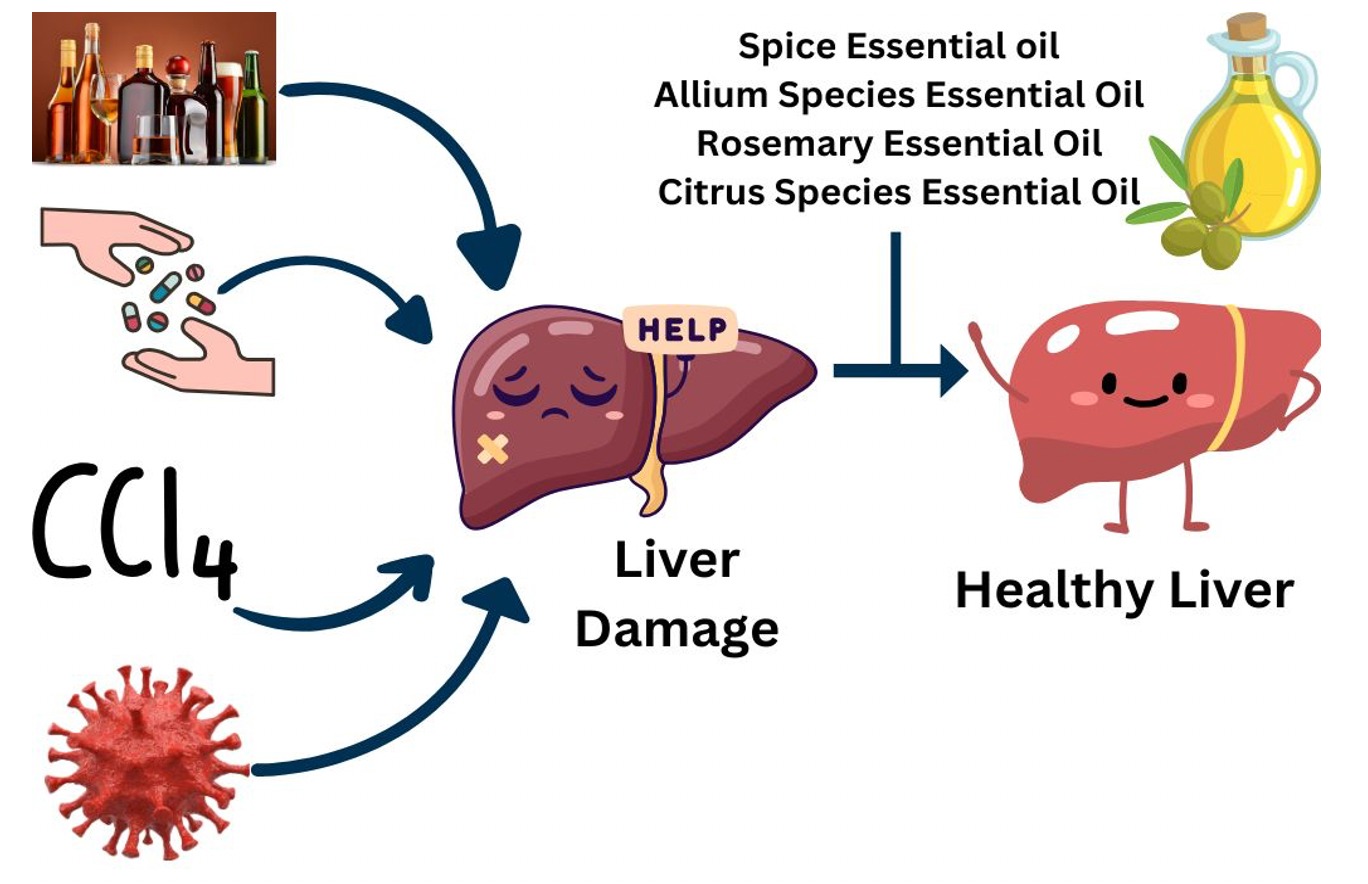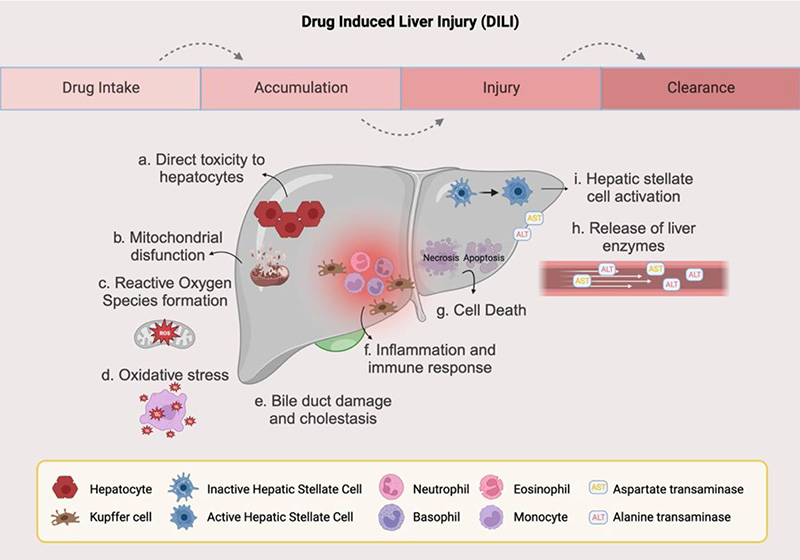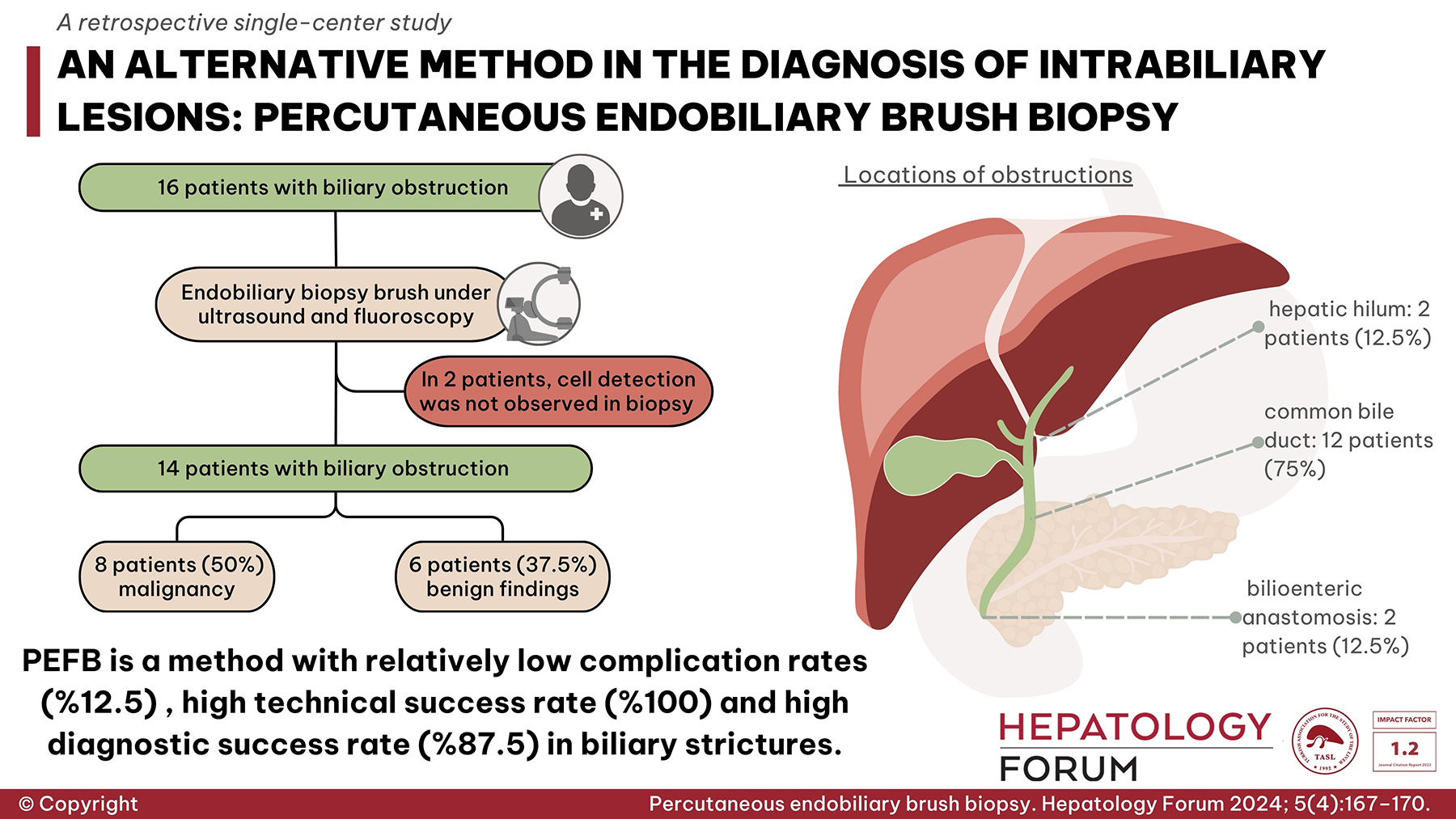2Division of Gastroenterology, Department of Internal Medicine, Dokuz Eylul University School of Medicine, Izmir, Turkiye
3Department of Pathology, Dokuz Eylul University School of Medicine, Izmir, Turkiye
Abstract
Background and Aim: Early detection, accurate evaluation, and proper follow-up of fibrosis in chronic liver disease are crucial for improving disease prognosis. Indirect biochemical fibrosis tests, such as the AST-to-Platelet Ratio Index (APRI) and Fibrosis-4 (FIB-4) score, have been developed, incorporating parameters like AST, ALT, and platelet count. However, the influence of factors such as Helicobacter pylori (H. pylori) on fibrosis tests such as APRI and FIB-4 remains unclear, and this study aimed to evaluate its impact.
Material and Methods: This study included 190 patients (aged ≥18 years) who underwent gastric and liver biopsies at a tertiary center between 2006 and 2021. Patients were categorized into three groups based on liver histo-pathological findings: mild (F0-1), moderate (F2-3), and advanced (F4-6) fibrosis. Additionally, patients were grouped based on H. pylori presence as determined by gastric histopathology. Demographic, clinical, laboratory, imaging, and histopathological characteristics were analyzed and compared between groups.
Results: Among the 190 patients, H. pylori was detected in 135 (71%) and was absent in 55 (29%). No significant differences were observed between H. pylori-positive and -negative groups in terms of AST, ALT, platelet count, INR, FIB-4, or APRI scores. For APRI, significant differences were found between mild-moderate and mild-advanced fibrosis groups (p<0.001), but not between moderate and advanced groups (p>0.05). For FIB-4, significant differences were observed across all fibrosis groups (p<0.001). The presence of H. pylori did not significantly affect the APRI or FIB-4 scores within any fibrosis group.
Conclusion: The presence of H. pylori did not significantly impact APRI or FIB-4 scores. These indices can reliably assess liver fibrosis, regardless of H. pylori status.





 Ali Cagatay Bozkina1
Ali Cagatay Bozkina1 









